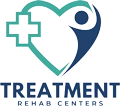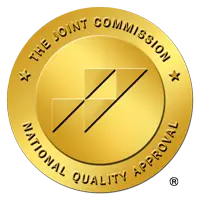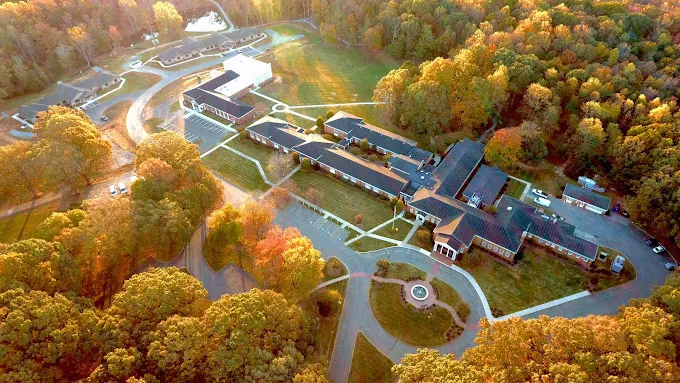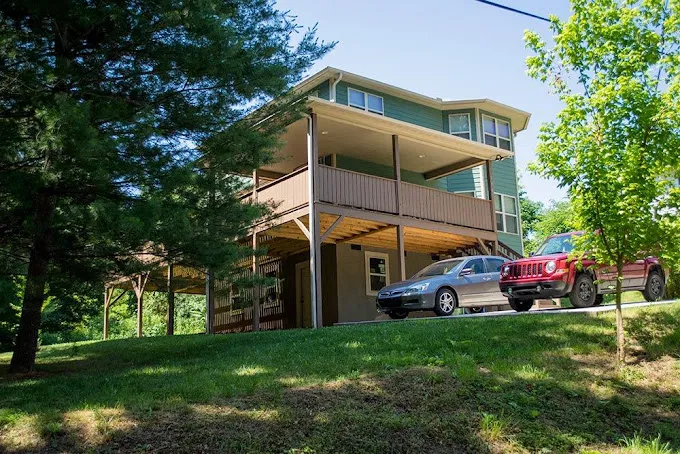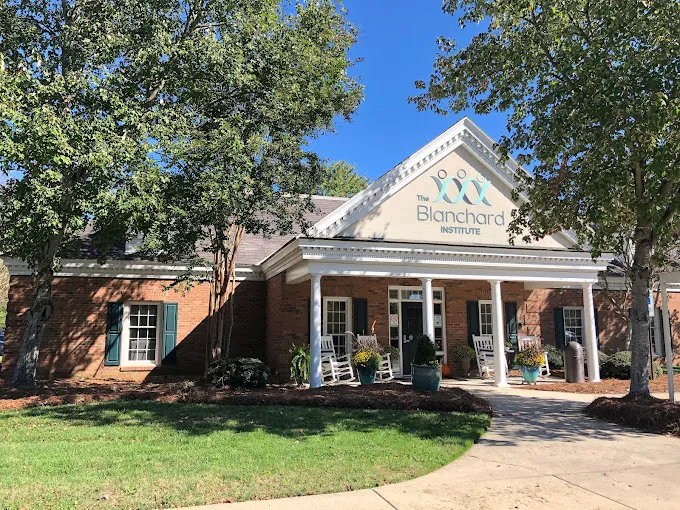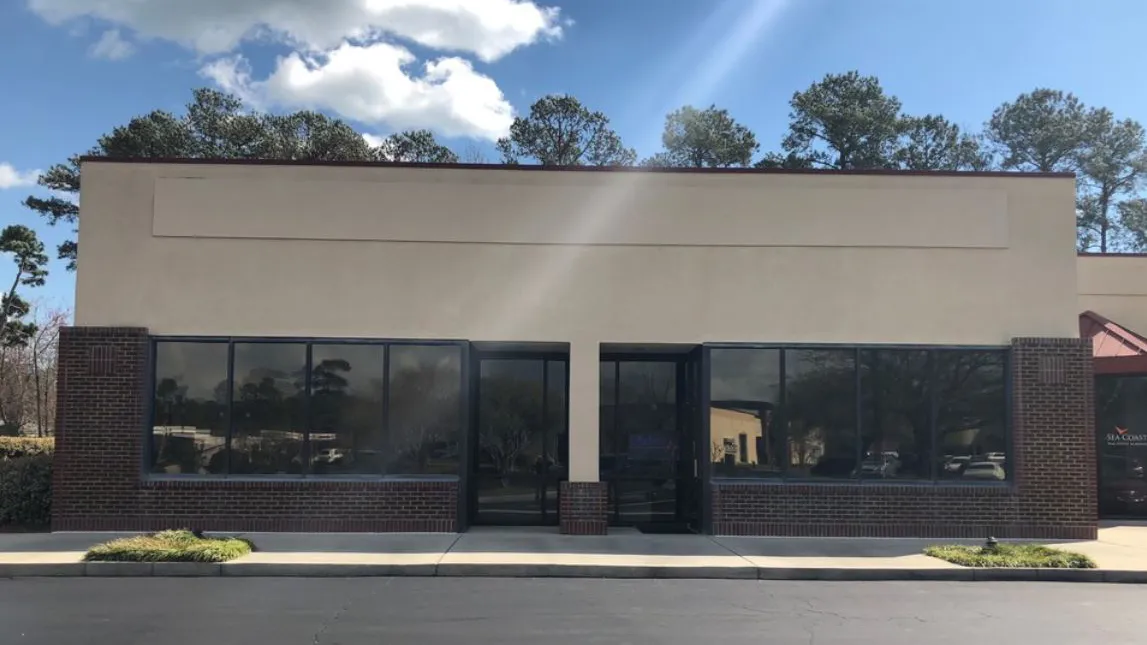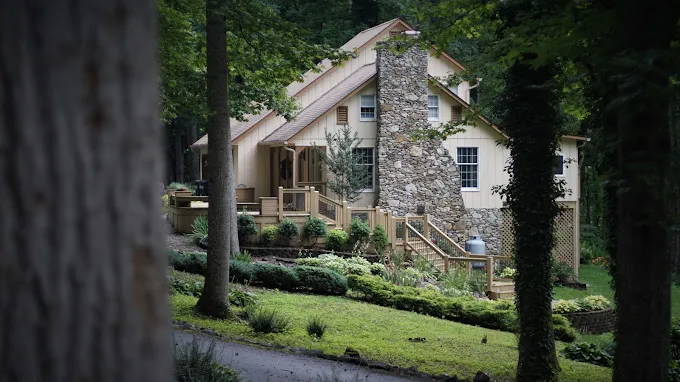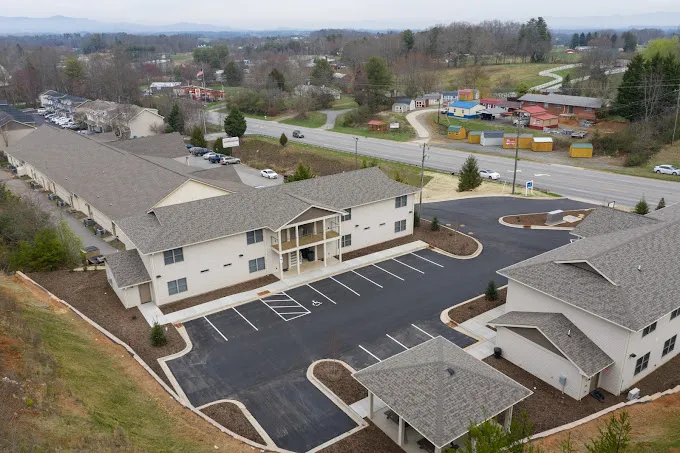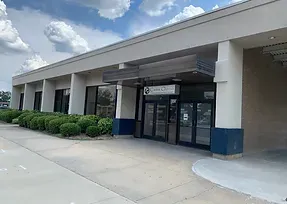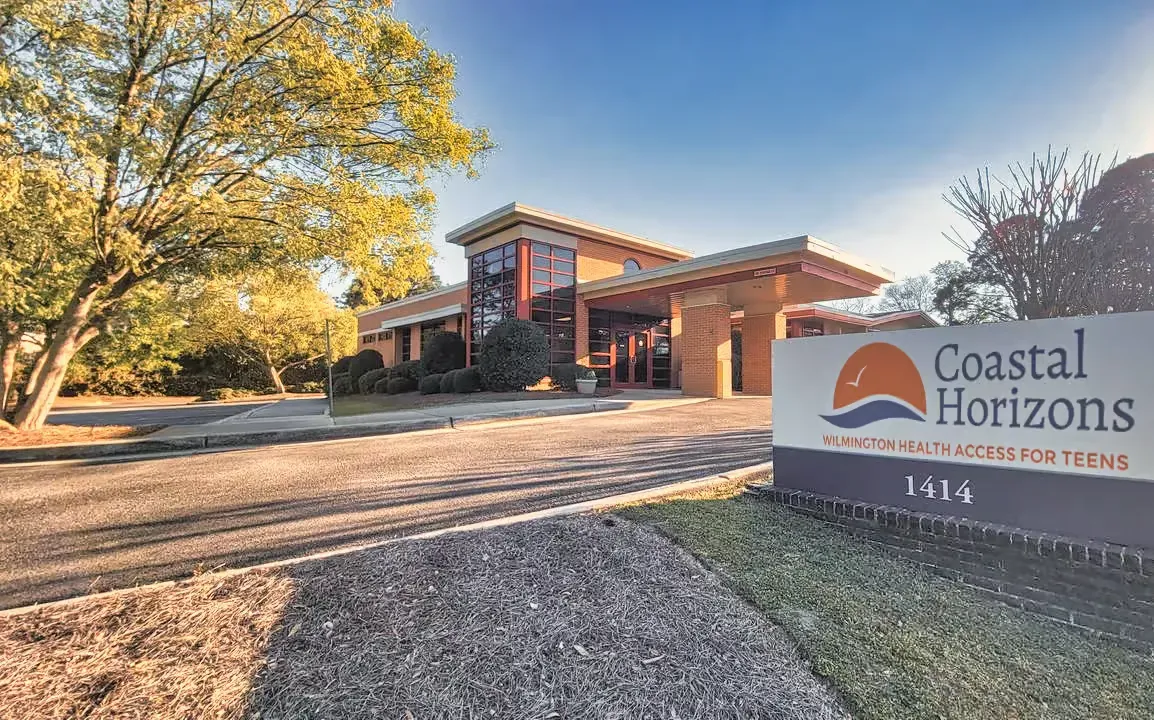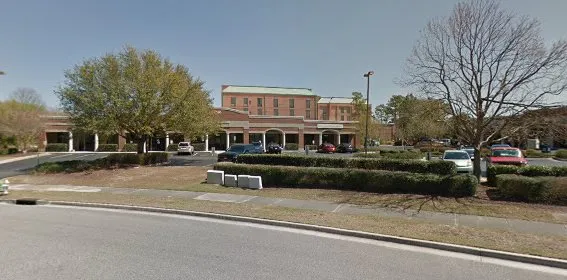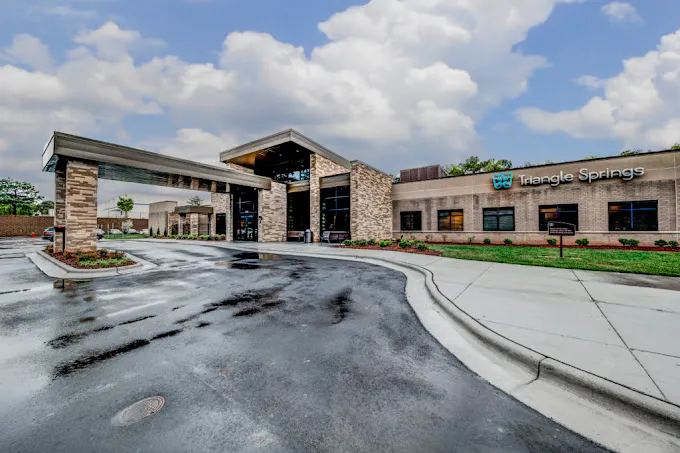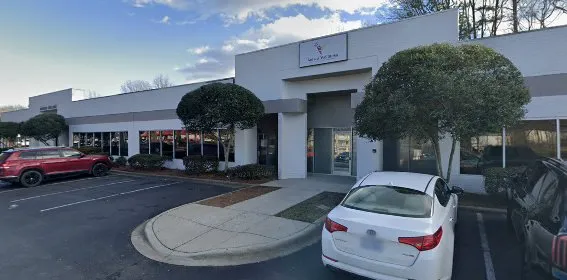The Top Dual Diagnosis Treatment Centers in North Carolina
Our team has selected the 12 top North Carolina dual-diagnosis treatment centers based on our vetting process for providers of co-occurring disorder treatment programs.
To review our standards, ‘Our Vetting Process’
Search Nearby Cities
- City Name
Browse Treatment Centers in North Carolina
At SOBA Recovery Centers, we are dedicated to providing our clients with exceptional care in a welcoming, non-judgmental setting. Our clients and their families have access to some of the best clinicians in the state and an array of luxurious amenities such as a gym, sauna, jacuzzi, and gourmet meals prepared by world-class chefs to enhance their rehab experience.
We are committed to making the journey to recovery as comfortable and effective as possible. We accept most major insurance policies and offer free transportation services for clients within a five-hour radius of our facility. New Brunswick, New Jersey
LEVELS OF CARE
Editorial Note
Fellowship Hall is a not-for-profit inpatient treatment program that offers services to men and women, grounded in 12-step traditions. In addition to gender-specific programs, they provide specialized programming for young adults. While treatment length is individualized, most clients begin with a 1-5 day detox before transitioning into the residential program.
Treatment options at Fellowship Hall include group therapy, psychoeducation, relapse prevention classes, biofeedback, yoga, meditation, EMDR, and more. This variety allows clients to tailor their recovery experience to fit their unique needs and goals. For those transitioning from residential to outpatient care, Fellowship Hall also offers access to transitional housing, ensuring continuity in their recovery journey.
WHAT THEY TREAT:
Dual diagnosis substance abuse and depression, anxiety, bipolar disorder, personality disorders, panic disorder, PTSD, and ADHD.
Levels of Care
Detox, Dual Diagnosis, Inpatient Detox, Inpatient Treatment, IOP, MAT, PHP, Residential Treatment, Sober Living
Willow Place is a female-only substance abuse treatment facility that emphasizes trauma-informed care through a blend of evidence-based therapies, process group therapies, skill development, and holistic treatments. While primarily focused on women struggling with addiction, the facility also offers dual diagnosis support for those dealing with co-occurring mental health and eating disorders. Each treatment plan is tailored to the individual, offering services such as dialectical behavior therapy (DBT), medication management, family therapy, relapse prevention, biosound healing, yoga, 12-step programs, and art therapy.
Evidence-based programs at Willow Place revolve around process groups, skill development, and interpersonal training, with the ultimate goal of helping each woman find meaning in her life and recovery journey. This sense of purpose motivates clients to continue their healing long after the program ends. Additionally, clients have access to supportive housing services to ensure they have the resources needed for a successful transition.
WHAT THEY TREAT:
Dual diagnosis substance abuse and eating disorders, sex addiction, depression, anxiety, and trauma.
Levels of Care
Aftercare, Dual Diagnosis, IOP, MAT, PHP, Sober Living
The Blanchard Institute offers individualized outpatient treatment programs that address both substance use disorders and co-occurring mental health conditions. Their approach educates clients on how substance abuse has impacted their lives, explores underlying causes often rooted in trauma or mental illness, and equips them with coping strategies and healthy habits for long-term recovery. Each program takes a holistic approach, addressing both the mind and body to support comprehensive healing.
Treatment services may include biosound therapy, EMDR, acupuncture, sound therapy, yoga, family education, case management, relapse prevention planning, and various support groups. Clients are also encouraged to involve their loved ones in family programs, helping them understand addiction and develop strategies for a supportive home environment.
WHAT THEY TREAT:
Dual diagnosis substance abuse and depression, anxiety disorders, and post-traumatic stress disorder.
Levels of Care
Dual Diagnosis, IOP, MAT, Outpatient, PHP
Brighter Start Health offers a comprehensive dual diagnosis treatment program by combining 12-step philosophies, cognitive behavioral therapy (CBT), dialectical behavior therapy (DBT), motivational interviewing, faith-based guidance, and nutritional wellness. Each client undergoes an evaluation by a clinician and addiction specialists to assess their unique needs, followed by the development of a customized treatment plan designed to address those areas effectively.
This personalized program may include services such as medication management, peer support groups, psychoeducation, family therapy, case management, and group therapy. To ensure ongoing support, clients are also provided with referrals to sober living communities through Lifeline or a trusted organization, ensuring they have a safe and supportive environment for continued recovery.
WHAT THEY TREAT:
Dual diagnosis substance abuse and depression, anxiety, and trauma.
Levels of Care
Dual Diagnosis, IOP, MAT, Outpatient, PHP, Sober Living
Oasis is a mindfulness-based dual diagnosis recovery center that combines evidence-based therapies with holistic treatments to address both drug addiction and mental health disorders simultaneously. Their approach is centered around the Oasis Model, which includes individualized treatment plans, family involvement, a strategic planning committee, volunteer opportunities, and an aftercare alumni group to support long-term recovery.
Clients at Oasis benefit from gender-specific programs, trauma therapies, 12-step programs, psychotherapy, and various holistic treatments such as adventure therapy, art, equine-assisted therapy, acupuncture, yoga, meditation, qi gong, and breathwork. These services work together to address the client’s spiritual, emotional, physical, intellectual, and mental health, providing a comprehensive, whole-person approach to recovery.
WHAT THEY TREAT:
Dual diagnosis substance abuse and trauma, depression, anxiety, bipolar disorder, and other mental health issues on a case-by-case basis.
Levels of Care
Aftercare, Dual Diagnosis, IOP, MAT, PHP, Residential Treatment, Sober Living
Crest View’s primary mental health treatment is centered around a reality-based therapy model that focuses on education and real-world training to address addiction, particularly for clients who self-medicate due to underlying mental illness. In addition to therapy, clients have access to yoga, meditation, fitness programs, and nutritional guidance to promote overall physical wellness.
Crest View also offers services designed to support long-term recovery, including gender-specific group therapies, family counseling, cognitive behavioral therapy (CBT), dialectical behavior therapy (DBT), and trauma-informed care. These therapies aim to address the root causes of addiction and the symptoms that have arisen from substance use. The duration of each client’s stay is based on their individual progress through the program.
WHAT THEY TREAT:
Dual diagnosis substance abuse and anxiety, depression, bipolar disorder, ADHD, and PTSD.
Levels of Care
Dual Diagnosis, IOP, MAT, Outpatient, Partial Hospitalization
Carolina Outreach offers a variety of services for adults, adolescents, and children, but their substance abuse treatment programs are tailored specifically for men and women over the age of 18 who are struggling with drug and alcohol abuse. This program includes on-site 12-step meetings, motivational interviewing, cognitive behavioral therapy (CBT), group therapy, individual sessions, and detailed aftercare planning to support long-term recovery.
In addition to therapy, adults have access to medication management, community support programs, and assertive community treatment. The program focuses on helping clients build on their strengths and develop skills that foster overall wellness. These skills are reinforced through long-term outpatient aftercare. Clients are also encouraged to involve loved ones in family programs and therapies to support the healing process.
WHAT THEY TREAT:
Dual diagnosis substance abuse and anxiety and depression.
Levels of Care
Dual Diagnosis, IOP, Outpatient
Red Oak Recovery operates two separate locations in North Carolina, offering gender-specific treatment for men and women. Each program integrates 12-step philosophies, clinical therapies, family involvement, and experiential or holistic treatments to provide a well-rounded approach to recovery. By addressing every aspect of the client’s life, these multifaceted plans promote healing and personal growth.
Unique services at Red Oak include eco-therapy, adventure-based therapy, Gestalt therapy, dog-assisted therapies, boundary-setting groups, and mindfulness training. In addition to these, clients engage in evidence-based therapies tailored to their needs. Treatment plans are developed collaboratively with the client’s treatment team and can be adjusted at any time to ensure the most effective care.
WHAT THEY TREAT:
Dual diagnosis substance abuse and anxiety, eating disorders, trauma, and depression.
Levels of Care
MAT, Inpatient Treatment, Dual Diagnosis
Coastal Horizons offers comprehensive treatment services for individuals with dual diagnosis substance use disorders. These services include individual and group therapies, medication assistance as needed, medical care, psychiatric services, and various interventions aimed at promoting recovery and wellness. In addition to traditional therapies, clients are encouraged to participate in community service events, helping them reintegrate into society and build motivation for long-term change.
Prevention services and outdoor recreation programs are also integral to the treatment approach at Coastal Horizons. Their challenge course, which involves team-building activities, allows clients to harness their individual strengths and work collaboratively with their peers. Through these exercises, clients develop essential skills such as communication, problem-solving, and resilience, which support their recovery journey.
WHAT THEY TREAT:
Dual diagnosis substance abuse and anxiety and depression.
Levels of Care
Dual Diagnosis, Outpatient, Residential Treatment
Delta Behavioral Health emphasizes person-centered care alongside evidence-based programs to provide comprehensive treatment for individuals dealing with substance use and mental health issues. The primary therapeutic approach includes dialectical behavior therapy (DBT), which focuses on skill development essential for recovery.
In addition to DBT, Delta offers a range of services, including individual therapy, couples therapy, family-inclusive programs, medication management, mindfulness group therapy, and process groups. These therapies aim to equip clients with vital skills such as emotion regulation, distress tolerance, and effective communication. Delta Behavioral Health accepts most health insurance plans, self-pay options, and Medicare, making their services accessible to a wide range of clients.
WHAT THEY TREAT:
Dual diagnosis substance abuse and anxiety, PTSD, depression, panic disorders, bipolar disorder, eating disorders, personality disorders, ADHD, and adjustment disorders.
Levels of Care
Dual Diagnosis, IOP, Outpatient, Partial Hospitalization
Triangle Springs begins each client’s journey with a comprehensive assessment conducted by a dedicated clinician. This initial evaluation allows both the client and the clinician to identify the specific areas in need of treatment, determine the most suitable programs and services, and establish the duration of care necessary for effective recovery. Clients at Triangle Springs have access to semi-private living spaces, private bathrooms, outdoor areas, recreation rooms, and nutritious meals prepared by an on-site chef, creating a comfortable and supportive environment for healing.
The facility offers a wide range of treatment services, including individual therapy, support groups, cognitive behavioral therapy (CBT), activity-based therapies, and various talk therapies. Clients also participate in coping skill development and relapse prevention groups to help maintain long-term sobriety. Triangle Springs accepts most in-network and out-of-network health insurance plans and may also work with government assistance or other financial aid programs on a case-by-case basis to ensure that treatment is accessible for all who need it.
WHAT THEY TREAT:
Dual diagnosis substance abuse and anxiety, depression, PTSD, bipolar disorders, borderline personality disorders, psychosis, and suicidal ideation.
Levels of Care
Detox, Inpatient Treatment, IOP, Outpatient, PHP
Amara Wellness offers outpatient services that take a whole-person approach to substance abuse treatment, ensuring that clients receive care beyond just managing addiction symptoms. Each program is designed to address every aspect of the client’s life, equipping them with the skills, therapies, and habits needed to foster a healthy lifestyle and support long-term recovery even after treatment concludes. The focus is on maximizing the time spent in treatment to fully prepare individuals for life outside of rehab.
The comprehensive treatment process at Amara Wellness is rooted in addiction education, with a variety of services available to support recovery. Clients have access to medication management, community services, peer support groups, crisis and intervention services, individual therapy, and cognitive behavioral therapy (CBT). Additional offerings include solution-focused therapy, motivational interviewing, anger management classes, mindfulness practices, and life skills training. For added flexibility and comfort, clients can also opt for virtual care throughout their treatment journey.
WHAT THEY TREAT:
Dual diagnosis substance abuse and anxiety, depression, PTSD, bipolar disorders, borderline personality disorders, psychosis, and suicidal ideation.
Levels of Care
Detox, Inpatient Treatment, IOP, Outpatient, PHP
Have a Treatment Expert Reach Out To You
100% Free and Confidential
Our Grading and Vetting Standards
Each behavioral health provider in this resource has been thoroughly vetted and holds a combination of the following indicators of consistent and effective care:
– SAMHSA listing verification, JCAHO and/or CARF accreditations
– Composite online review score of 3.5/5 stars or better (except when too few reviews is noted)
– Evidence-based behavioral heath practices are reliably employed
Our clinicians and reviewing staff have given letter grades based on the above factors.
